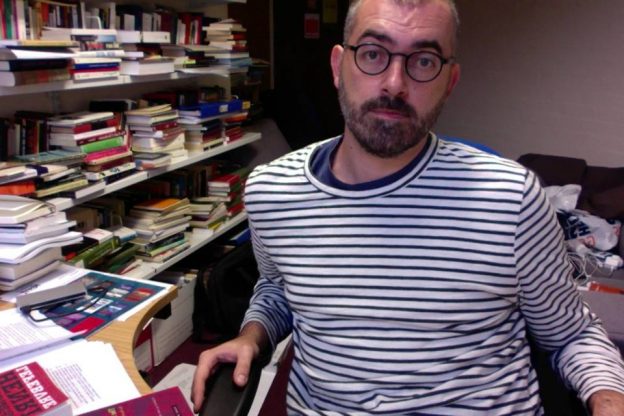A new book by Kent Law School Reader, Dr Thanos Zartaloudis, delves deep into history and culture to offer a rich, interdisciplinary analysis of “nomos”, an archaic Greek word that, today, is often reduced to “law”.
In The Birth of Nomos (Edinburgh University Press), Dr Zartaloudis comprehensively analyses ancient Greek sources along with material drawn from legal history, philosophy, philology, linguistics, ancient history, poetry, archaeology, ancient musicology and anthropology to explore how the word nomos (and related words) has been used across centuries of use. He assembles a genealogical history of the word to reveal a richness that is not reflected in its classical and modern usage as simply “law” or “law-making”.
The book draws on works by ancient Greek philosophers, poets and tragedians including Homer, Hesiod, Alcman, Pindar, Archilochos, Theognis, Heraclitus, Aeschylus, Sophocles, Euripides and Plato. It includes extracts from ancient primary sources, in both the original and English translation, to analyse how nomos has been used in the literary evidence and in context.
The Birth of Nomos also considers how nomos has been used by contemporary philosophers, including Agamben, Foucault, Heidegger, Schmitt, Deleuze and Axelos, and re-examines their interpretations. In a review of the book, philosopher Giorgio Agamben says: ‘Thanos Zartaloudis’ The Birth of Nomos renovates entirely our understanding of a fundamental term in the history of Western culture. From this unprecedented book, it becomes clear that we will need to rethink all of the themes that our ethical and political tradition has gathered around the word “Law”.’
Dr Zartaloudis is a Reader in Legal Theory and History at Kent Law School. He is Co-Director of Kent’s Centre for Interdisciplinary Spatial Studies (KISS) and Co-Director of the Centre for Research in Political Theology (Birkbeck Law School/Kent Law School).
